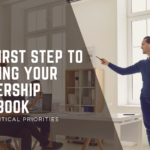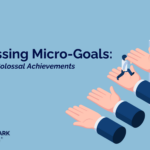Your resume sparked your potential employer’s interest. You’ve followed up successfully and you’ve made it passed the application process. And therefore, you’ve been called in for an interview to prove you are qualified. You must prove throughout the conversation that you are qualified for the job. And that you can perform it well.
You may think the interview process is just showing up to the meeting and answering their questions well. Actually, there’s more that you should do before, during, and after the interview. Afterall, you want to stand out in the pool of candidates.
Before the Interview
There are a couple things that you can do before you meet with the interviewer so that you feel fully prepared to make the best impression. Whether you’re applying for your dream job or moving to a new opportunity, you’ll need to do some research on the company you’re applying for. Your knowledge on the company will help employers gauge how interested you are in working for the company. Uncover as much as you can about the role, company, and industry.
In your research phase, take note of:
- Current trends and events that might impact your future employer
- The company’s website and social media activity
- Connect with people within the organization through LinkedIn, peers, or faculty to gain internal knowledge.
- Thoroughly read the job description and list why you would be a good fit for the position line-by-line
One impactful way to out from the rest of the competition is to send your interviewer a “pre” thank you note. A well written thank you note is a great way to show off your communication skills to your future employer. In your thank you note, reinforce why you are interested in the position and why you’re qualified. You also want to include something you’ve found inspirational about the company or recipient.
Finally, you want to be sure you proofread your letter for any grammar or spelling errors. It’s not common that an interviewer gets a pre thank you note from a candidate. Therefore, there is a good chance that the letter will be shared around the office and people will be talking about you before they even meet you.
During the Interview
When you meet with the interviewer, you want to display your skills by showing your executive presence. Executive Presence is a difficult term to define, but you know it when someone has it. It’s a skill that enables you to command attention, it’s when you exude confidence and inspire others.
Now there’s a fine line between exuding confidence and being too cocky or egotistical. You want your confidence to come off genuine, and that starts from the inside out. Before others perceive you as confident, you need to believe in yourself. You also want to keep in mind of your body language. Maintaining eye contact with your interviewers is another part of executive presence. Eye contact shows that you’re self-assured and you are actively listening to the conversation.
Along with showing your confidence, you need to sound confident. Be prepared to answer common interview questions. You can put these questions into two common categories, Behavioral Event Questions and Contrary Evidence Questions.
Behavioral Event Questions – A job interviewing technique in which the applicant is asked to describe a specific real life example in order to determine whether he/she is suitable for the position.
Contrary Evidence Questions – Probing or follow-up questions to standard behavioral event-based questions that typically asks for examples of behavior that is different, or opposite, from the behavior already described.
We’ve put together a worksheet for you to practice answering the most common interview questions, so that you’re prepared to nail this interview.
Download our Worksheet
Additionally, you want to have pertinent open-ended questions prepared to ask the interviewer. Always have questions, always. You’ll want to frame your question around the position, company or career opportunity, or the interview. And you don’t have to wait until the end of the interview to ask question. Asking questions throughout the conversation will help create more of a dialogue than a one-way conversation. Additionally, it will show the interviewer that you know how to volley control back and forth and that you’re actively listening to the conversation.
Another way to show off your active listening techniques is to bring paper and a pen to take notes. Be sure that your pad of paper or notebook looks professional. For example, no wrinkled edges or chewed-up pens! It’s a best practice to ask the interviewer if it’s okay to take notes during the interview and be sure to keep a healthy balance between writing quick notes and making eye contact. You can use your notes to refer back to when writing your thank you card. Also, for when you follow up and prepare for your second interview.
After the Interview
Once you’ve completed the interview, you’ll want to send out a thank you email the same day to thank the interviewer(s) for their time. Don’t forget to include a quick summary of why you’re the person for the role and any additional information they requested during the interview.
On top of sending out a thank you email, you want to send out a handwritten note on professional stationary. Use the information that you learned during the interview to structure the note. You can also go more in depth in the topics you sent in the thank you email if it is appropriate.
Lastly, you want to follow any follow-up instructions that the interviewer gave. Make sure you know what method of follow up is best for the interviewer, whether it’s a phone call or email. You want to be persistent in following up, but don’t be too obsessive where it comes off like stalking.
There are a lot of important steps you’ll need to take to stand above your competition and prove that you’re the right fit for the job before, during, and after the interview. The good news is with a little preparation you are on your way to landing the job of your dreams!
How Can Benchmark Training Help You Succeed?
Benchmark Training offers an on-demand 3-day advanced-level workshop that covers everything you need to prepare for your interview and stand out above the crowd through Attitude, Connection, and Evidence.
During the Interview ACE™ Workshop, you will experience 7 video sessions, each followed by a short quiz, roleplay exercise, and a journal reflection. For more details on the course content, contact us today.




